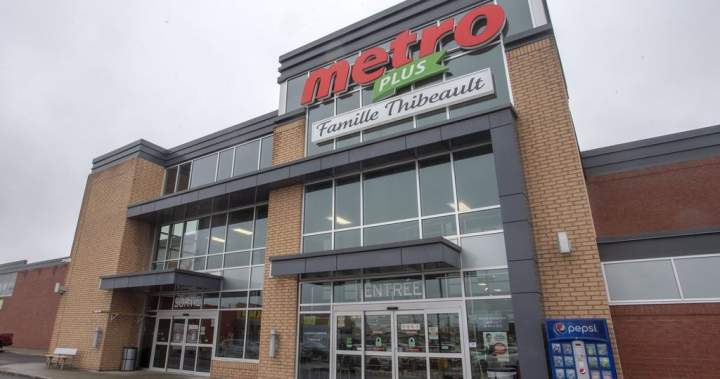Metro says about a fifth of its grocery store suppliers have begun raising prices as a direct result of tariffs and counter-tariff measures from the trade war sparked by United States President Donald Trump.
The company said that although it is working to keep prices relatively stable, customers may still start to see sticker prices rise.
“The introduced tariffs and counter-tariffs are a contributing factor to food inflation as we continue to receive price increase requests from our vendor partners,” CEO Eric R. La Flèche at Metro Inc. said Wednesday on an investor conference call.
“Teams continue to negotiate to minimize the impact on consumers, and for now, the effects remain manageable.”
The trade war means there are tariffs imposed by the United States on some food and drug products imported from Canada, and there are also counter-tariffs in place that would make prices for some U.S. goods higher once they cross the border into Canada.
This means some suppliers are now starting to increase the prices they charge to outlets like Metro Inc. before their products are sold directly to customers.
These price increases, however, do not apply to goods that fall under the terms of the current free trade agreement, known as the Canada-United States-Mexico Agreement (CUSMA).
Prime Minister Mark Carney is still working on a more permanent trade deal with the United States that removes or minimizes the impacts from tariffs, and Carney has said he will only accept a deal that is “good for Canada.”

Get breaking National news
For news impacting Canada and around the world, sign up for breaking news alerts delivered directly to you when they happen.
To maintain customer loyalty without having to raise prices, many Canadian business owners have been “absorbing” these tariff increases, which may sacrifice profits.
This may not be sustainable long-term as businesses need to remain profitable to thrive, and so increases for customers could happen the longer the trade war goes on.
“We (Metro) negotiate as best we can (with suppliers) to minimize the impact on our customers in this environment where everybody’s searching for value and everybody’s more price-sensitive,” La Flèche said.
La Flèche also told investors on the conference call that in its latest fiscal quarter, or three-month period, Metro did see price increases that were in line with the May food inflation reading of 3.1 per cent from Statistics Canada.
This suggests that price increases in the past few months have been under normal economic circumstances — not directly tied to tariffs.
Still, Metro did not rule out price increases for customers now that the company has confirmed suppliers are already raising prices.
A Global News request sent to Metro Inc. asking exactly how the company plans on keeping costs stable for customers as tariffs create more pressure to raise prices did not receive a response by publication time.
Meanwhile, Metro says the ‘Buy Canadian’ movement remains strong as customers look to support Canadian businesses in the face of the trade war and a soured sentiment about the United States.
“Customers are responding well. Sales of Canadian products are outpacing total sales and the gap has accelerated over the past few weeks,” said La Flèche, who adds that Metro continues to seek alternative suppliers to the U.S., where possible, in order to minimize tariff impacts.
Meanwhile, customers may still be prioritizing value and lower prices as inflationary pressures and affordability concerns continue to weigh on household budgets.
La Flèche said in the earnings call to analysts that sales growth at the company’s discount-branded stores like Food Basics continues to outpace that of its flagship Metro stores, and that the trend has been consistent “for the past few years.”
In its latest reporting quarter, Metro says its sales totalled almost $5 billion, which was an increase of 5.5 per cent compared with a year prior. The company saw a net profit of $220 million in its second fiscal quarter compared with $187.1 million in 2024.
La Flèche said these latest numbers are “solid results.”
Read the full article here


